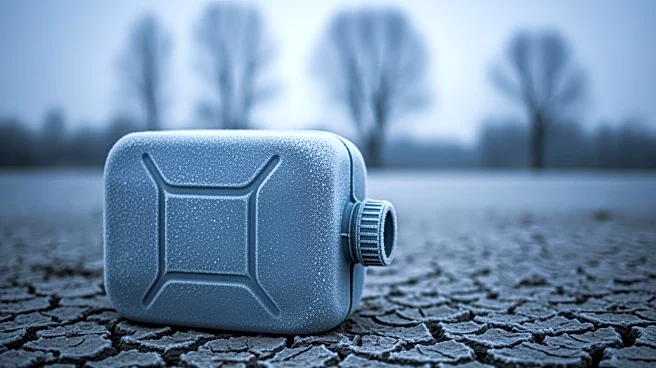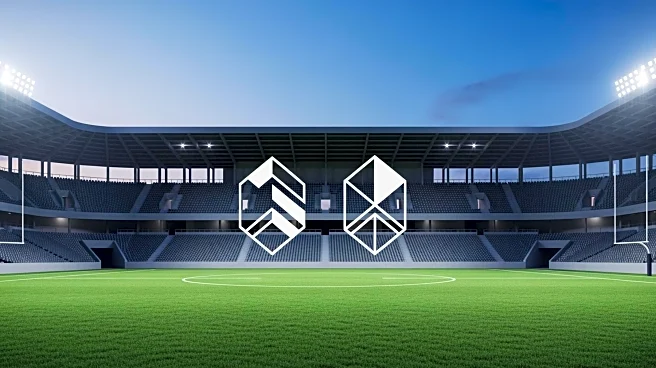What's Happening?
As winter approaches, over a million residents in Gaza are vulnerable to extreme weather and disease due to a severe shortage of tents, food, and warm clothing. Israeli restrictions have hindered the humanitarian
response, despite a U.S.-backed ceasefire that requires the unfettered flow of aid. The United Nations and other agencies are working to repair stormwater infrastructure and makeshift dwellings damaged by recent rains. Israeli authorities have classified some relief items as 'dual use,' limiting their entry into Gaza. The situation is exacerbated by damaged water and sanitation systems, posing a risk of public health crises.
Why It's Important?
The humanitarian crisis in Gaza highlights the ongoing challenges faced by residents in the region. The shortage of essential supplies and infrastructure damage could lead to widespread suffering and health issues. The restrictions on aid entry, despite the ceasefire, underscore the complexities of delivering humanitarian assistance in conflict zones. The situation calls for increased international attention and support to address the immediate needs of the population and prevent further deterioration of living conditions.
What's Next?
Humanitarian organizations may intensify efforts to negotiate with Israeli authorities for the entry of essential supplies. The international community could increase pressure on stakeholders to ensure compliance with the ceasefire terms and facilitate aid delivery. The upcoming winter season may prompt additional emergency responses to mitigate the impact of extreme weather on vulnerable populations. Long-term solutions may involve infrastructure development and policy changes to improve living conditions in Gaza.









